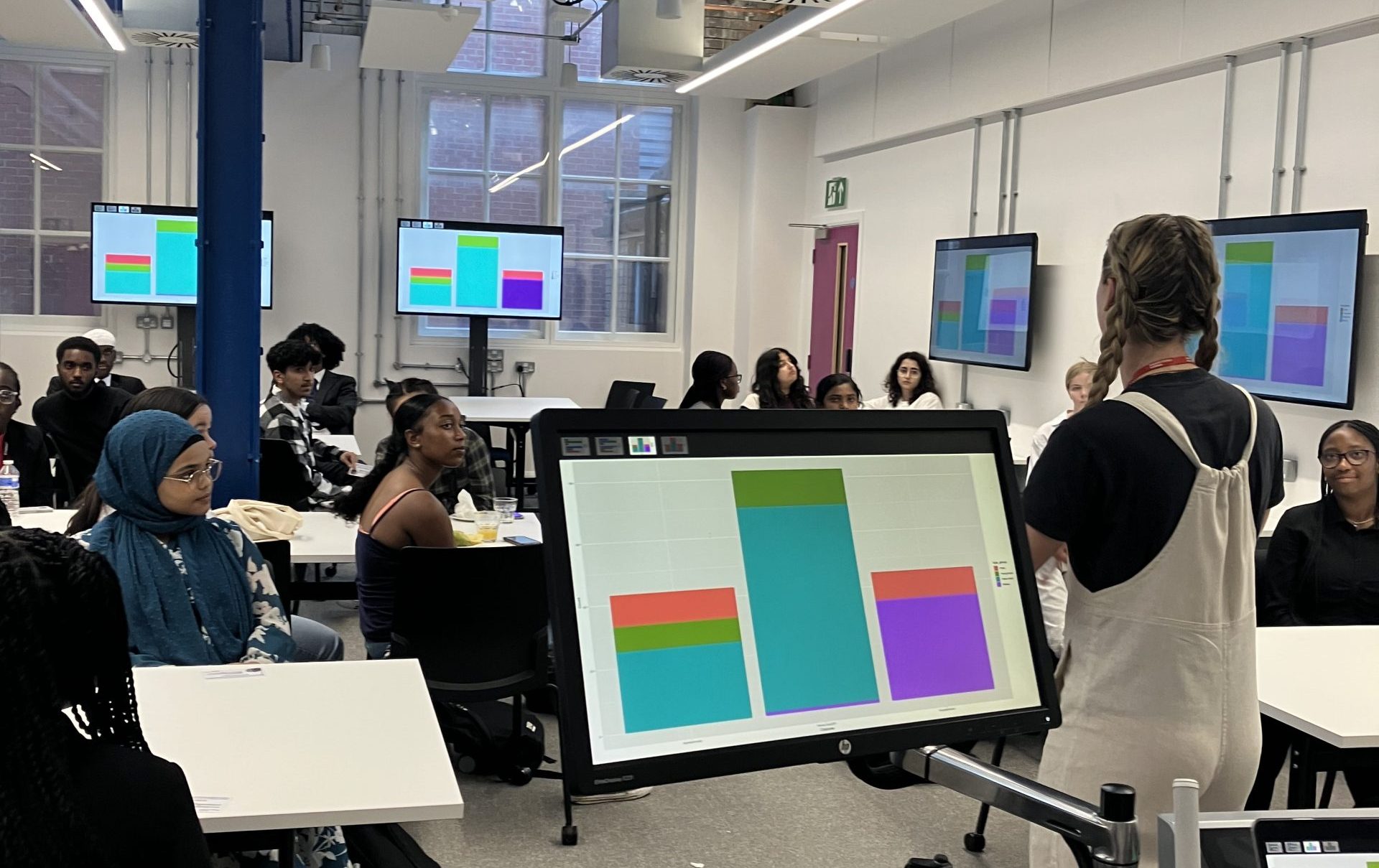
On the evening of the 15 June the Centre for Antimicrobial Optimisation (CAMO) and Health Protection Research Unit (HPRU) in HCAI and AMR, the Antimicrobial Research Collaborative (ARC) and North West London Pathology (Imperial College Healthcare NHS Trust) led a Infectious Diseases taster event for Imperial’s Pathways to Medicine programme.
By Emma Carter (HPRU) and Ashleigh Green (CAMO)
Imperial’s Pathways to Medicine programme is delivered in partnership with the Sutton Trust, with support from Health Education England, to widen participation in medicine, particularly for students under-represented in higher education. During the event the 45 students aged between 16-18, were given an overview of infectious diseases and explored the exciting career possibilities within the realm of healthcare.
An Informative Journey:
The event commenced with an enlightening talk by Dr. Damien Ming, an experienced infectious disease doctor. Dr. Ming shared personal anecdotes about his journey into medicine, highlighting the captivating field of infectious diseases. The students gained valuable insights into the daily life of a medical professional and were introduced to various medical specialties, broadening their understanding of the diverse career paths within the healthcare sector.
Engaging Workshops:
To provide the students with hands-on experience, we organised two interactive workshops: one focusing on data science and the other on infection prevention and control (IPC).
The data science workshop offered an immersive experience in which the students participated in a simulated infection outbreak scenario. They assumed the roles of individuals passing on a disease and shared patient characteristics such as age, sex, and outcomes. As the details were progressively added to the data system, the students observed relevant graphs and information. This exercise encouraged them to explore intriguing patterns, generate potential hypotheses, and analyse data-driven insights—an essential skill in the medical field.
In the IPC workshop, led by Dr Hugo Donaldson, Consultant Microbiologist, the students engaged in a fun activity that emphasised the importance of hand hygiene, disease spread and infection control measures. This highlighted the spread of healthcare acquired infections and the crucial role of doctors in safeguarding patient well-being.
A Glimpse into A&E:
The event culminated with a captivating talk by an experienced A&E (Accident & Emergency) doctor. The students learned about the fast-paced environment of the emergency department and gained insights into the daily challenges and rewards of a career in medicine. This personal account provided them with valuable perspectives and encouraged them to pursue a medical career.
Inspiring the Next Generation:
“Pathways to Medicine” proved to be a transformative event for the participating students. By offering engaging workshops, informative talks, and immersive experiences, we aimed to inspire and empower them to pursue careers in medicine and STEM disciplines. We believe that by instilling a passion for healthcare and providing them with valuable insights, we are nurturing the future generation of healthcare professionals who will make a positive impact on society.
Conclusion:
“Pathways to Medicine” served as a resounding success, bridging the gap between academia and aspiring healthcare professionals. The volunteers’ active participation in the event not only instilled confidence in the researchers’ ability to create awareness and foster interest in infectious diseases among young individuals but also led to the development of captivating activities centred around the field of data science. These activities hold potential for future utilisation and expansion. As researchers, we are immensely proud to have been part of this event and eagerly anticipate the remarkable contributions these aspiring healthcare professionals will make in the years to come. Together, we can inspire, educate, and shape a brighter future for healthcare.
This experience was invaluable for us as researchers, providing an exceptional opportunity to effectively communicate fundamental aspects of our careers to a young lay audience. Mastering creative and engaging scientific communication is vital in our field. A strong foundation in communicating scientific ideas with patients and the public is pivotal for conducting impactful research. Witnessing the next generation of doctors and scientific researchers share their ideas and pose thought-provoking questions about infectious diseases and diverse career opportunities, including those involving data science, was truly rewarding. The event reinforced the significance of engaging and exchanging knowledge with young minds.